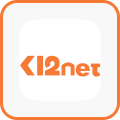MOD Koleji İlkokulu, öğrencilerini hayata ve bir sonraki eğitim kurumu olan ortaokula en iyi biçimde hazırlayan, çağdaş ve yenilikçi bir okuldur. Çalışmalarında eğitim, psikoloji ve yönetim alanlarındaki bilimsel gelişmeleri ve bulguları temel alır, bilimin gösterdiği aydınlık yolda ilerler. Bu sayede yurdumuzda ve dünyada öncü çalışmalara imza atar, akademik çizgisi en üst düzeyde olan Türk ve Dünya okulları arasında yerini alır.
Okulumuzda çocukların kişi olarak çok iyi tanınma şansı ve fırsatı vardır. Kişisel ilişkiler, sosyal ilişkiler çok daha güvenli bir ortamda denenerek yaşanır.
Çocukların her birinin farklı olabilecek ihtiyaçlarının neler olduğunun farkına varılabilir ve bu ihtiyaçların çok daha kısa zamanda; çok daha etkin giderilmesi sağlanır.
Okulumuz her bir öğrencinin kendini göstermesi ve öğretmenlerin ilgisinden yararlanması için daha çok fırsat sunar ve performansını yükseltir. Ayrıca kişisel ilgi, öğrencinin derslere ilgisini arttırır ve başarısını beraberinde getirir.



